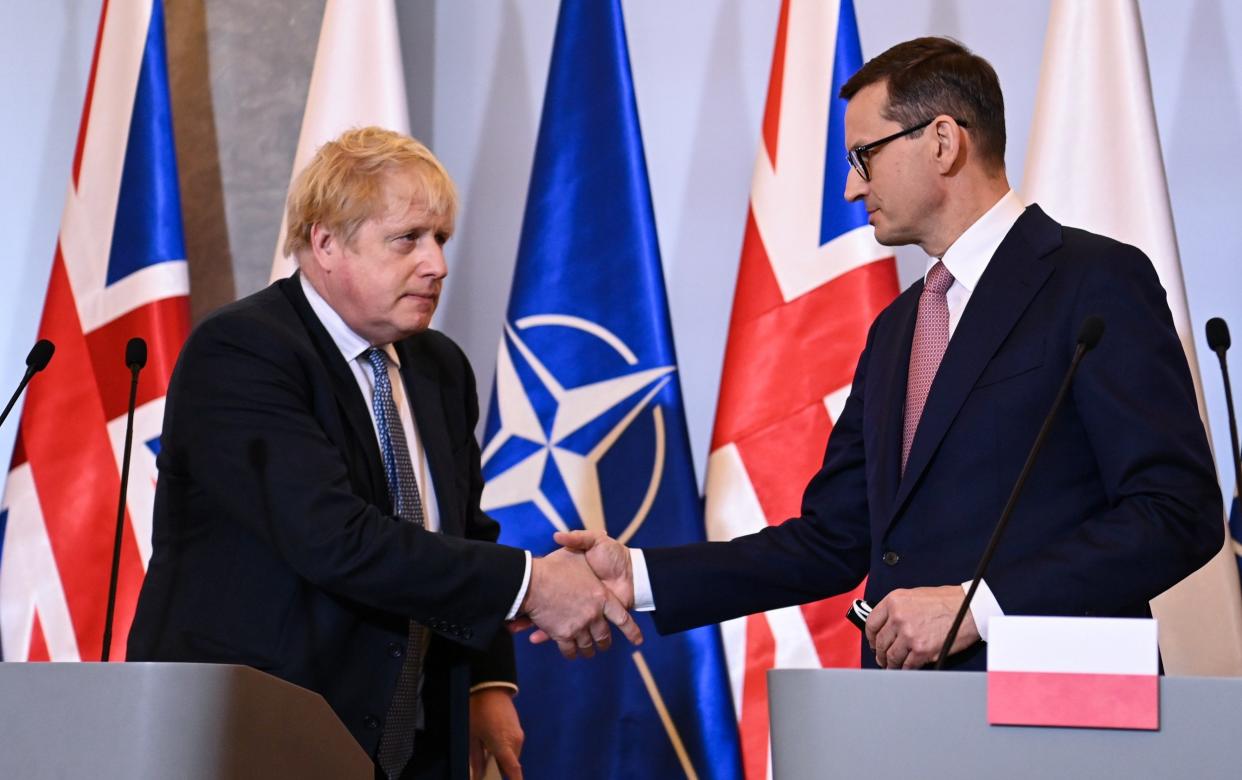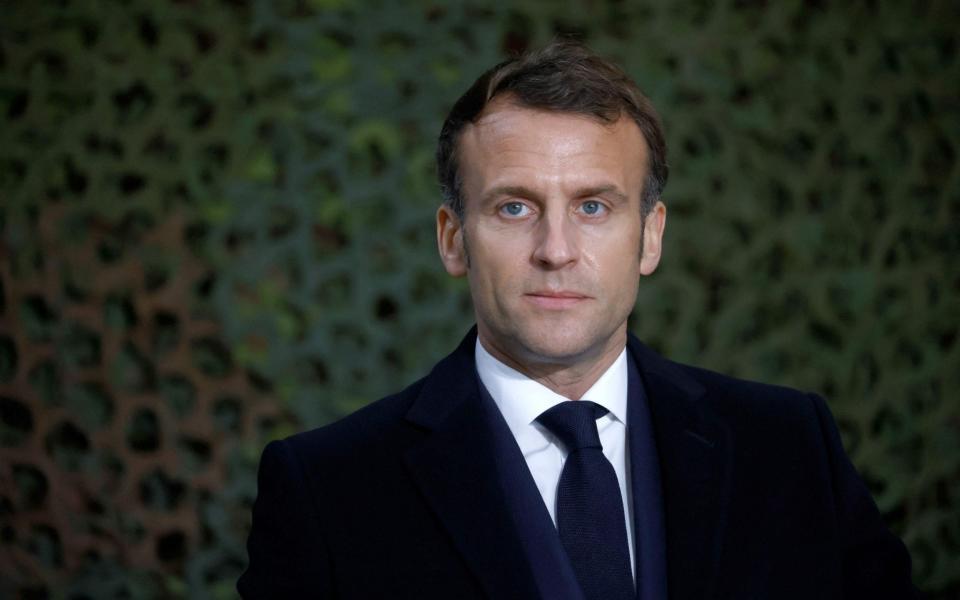EU hands Britain post-Brexit olive branch – an offer to lead new security council

European leaders are planning to ask Britain to head up a new security organisation to counter future geopolitical challenges, in a move to put post-Brexit tensions behind them.
Proposals for a “European Security Council” are being drawn up by Germany, the Netherlands and Poland in order to bring “Britain back into the fold” of major foreign policy discussions outside the confines of the European Union.
The influential EU capitals believe it is now time to end years of bitterness after Brexit and forge new ties based on security and global co-operation, all to ensure Europe is better positioned to tackle world crises, in areas such as the Ukraine crisis and future pandemics.
A group of countries are already urging Olaf Scholz, the German chancellor, to personally reach out to Boris Johnson to “bring Britain back into the fold”. Berlin is considered to have enough political heft to ensure the proposals, which are still in their early stages, have maximum impact.
“Continental leaders need to say we’re sitting down, and it would be great if you sat down with us,” a senior European diplomat told the Telegraph.
Britain’s handling of the Ukraine crisis, especially the willingness of Liz Truss, the Foreign Secretary, to work with EU allies, has reinforced European calls to improve ties with the UK, the source added.
France opposed to plans

Eastern countries, including Poland and those in the Baltics, are keen to forge closer relations because they still trust London more than Brussels, Paris or Berlin as the leading guarantor of European security.
Membership of the European Security Council would be judged on strict criteria, with levels of defence spending being included in early considerations.
Initial discussions have put an emphasis on not including all of the EU’s 27 members over concerns that the body could be seen as an extension of the bloc and that it could also become a dysfunctional talking shop.
France was said to be opposed to the plan because Emmanuel Macron still has a “chip on his shoulder” over Brexit and the Aukus defence pact between the UK, US and Australia, which cost Paris a lucrative contract to build submarines.
The Telegraph understands that the concept has not been formally put to Mr Johnson, but European leaders could make initial overtures in the coming weeks.
The Prime Minister was said to be “generally very keen” on improving bilateral relations with individual European countries, outside the confines of the EU.
Since leaving the bloc, the Government has focused on building fresh ties with like-minded Western democracies to address geopolitical challenges, such as the growing influence of China and Russia.
Boosting intelligence to prevent future crises
Britain, Poland and Ukraine are already working on a trilateral pact to strengthen regional security.
While it is acknowledged across Europe that Britain is a steadfast backer of the G7, G20 and Nato formats for foreign policy discussions, Eastern states such as Poland feel excluded by their economic focuses.
Another reason to bring Britain back into the European discussion on security is because of the differing interpretations of intelligence on the build-up of Russian troops on its border with Ukraine.
Britain’s warning of an imminent invasion has been at odds with France, which argues that an incursion is unlikely. However, a growing group of European nations are understood to believe UK officials over their French counterparts.
Mr Johnson will likely be offered the first rotating presidency of the new organisation as an olive branch to convince the Prime Minister to come on board with the plans.
Other non-EU members, including Norway and western Balkan states, would also likely be offered an opportunity to join the intergovernmental organisation.

 Yahoo News
Yahoo News 
